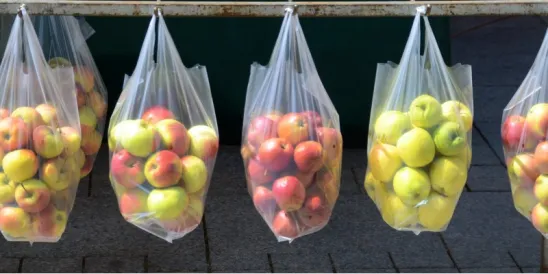In recent years, many cities and counties in California and across the country have adopted local laws that restrict or ban single-use carryout bags. These local laws have been implemented largely due to perceived concerns about how the use of such bags can impact the environment. In 2014, the California legislature passed and the governor signed a statewide carryout bag law known as Senate Bill 270. The bill prohibits certain stores from providing single-use plastic carryout bags and requires such stores to charge customers for any other carryout bag provided at checkout.
The implementation of Senate Bill 270 was suspended when a referendum that would eliminate the law qualified for the November 2016 ballot as Proposition 67. California voters were asked in the recent election to decide whether the statewide carryout bag law should be upheld or rejected. Ultimately, California voters rejected Proposition 67, thereby upholding Senate Bill 270.
Following the passage of this proposition, the 2014 bill banning single-use plastic bags is now in effect as originally written.
California Law Today
Most grocery stores, retail stores with a pharmacy, convenience stores, food marts, and liquor stores in California are prohibited from providing single-use plastic carryout bags. Retail clothing stores that sell only clothing and do not sell perishable items are not affected by the law, but they and others may nonetheless voluntarily agree to comply with the requirements of the statute.
California law additionally creates new standards for the material content and durability of reusable plastic carryout bags. Aside from regulating the volume capacity and warnings to be affixed to reusable bags, California will establish a rulemaking process to certify each type of reusable grocery bag sold in the state.
Stores in California are now required to charge at least 10 cents for any reusable carryout bag provided to consumers at checkout and to itemize that amount on the receipt. A referendum on the November ballot that would have mandated that retailers submit this money to the state for environmental programs was rejected, so retailers are entitled to keep those amounts, but the money must be used for the costs of bags, compliance, and education regarding reusable bags. Certain exceptions to the required charge exist for bags used for prescription medicine and those customers paying with a state-issued payment card or voucher.
Lastly, although the law preempts any new local bag laws—which is perhaps a silver lining for retailers that have dealt with the patchwork of local and county laws over the past several years—it does not disturb local ordinances in effect as of September 1, 2014. In addition, the law expressly allows such jurisdictions to increase the amount that covered stores are required to charge to an amount more than 10 cents per bag.
Practical Implications
Retailers and stores affected by the bag ban should be aware of these various requirements to ensure compliance with Senate Bill 270. A city, county, or the state of California may impose civil liability on a person or entity that knowingly violates this law, with penalties ranging from $1,000 to $5,000 per day. Retailers are encouraged to confirm whether they are subject to the plastic bag ban, and if so, review and update operating practices within California.








 />i
/>i

